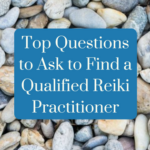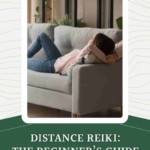5 Tell-Tale Signs You Could Use A Reiki Session
Reiki can help with a wide range of physical, emotional, and mental issues such as pain, anxious feelings, depression, grief and sadness, and confidence and self esteem. It can be particularly helpful with any major life changes in career, relationship, home or family. Here are 5 tell-tale signs you could use a Reiki session.
1. Stress
You’re feeling very stressed and find it hard to switch off even during down-time or when it’s time to go to sleep. Many people report feeling calmer and more peaceful and often notice an improvement in sleep after receiving Reiki sessions. Stress is attributed to 85% of all disease, so anything you can do to reduce stress can have huge benefits.
2. Feeling Stuck
You feel blocked or stuck and are having trouble moving forward. Some people feel it in their body, while others notice it more in the mind–perhaps ruminating, obsessing, or overanalyzing. Our energy is meant to flow smoothly, just like the circulation in the physical body, and Reiki is good at softening and releasing these stuck or blocked feelings in the mind and body.
3. Major-Life Changes
You’re in the middle of a major life change, be it a health challenge, a recent break up, moving to a new place, or changing jobs, and you could use additional support. Reiki helps balance and shift your energy, and this shift allows you to get in touch with yourself in a deep, profound way.
As a Reiki practitioner, I don’t heal people. Rather, Reiki enhances access to your own inner wisdom and innate healing ability. The healing unfolds from this inner connectedness.
4. Balance
You’re feeling out of balance in your life or with your health. For example, you’re feeling too emotional, crying for no reason; or alternately, you don’t feel in touch with your emotions, you feel flat or unmoved when good or bad things happen. Or you may notice specific areas of your life are out of balance, for example, you’re a workaholic and your personal relationships (romantic, family, or friends) are suffering.
5. Intuition
Your intuition is off; you’re lacking clarity or are having trouble making decisions. For example, you feel too swayed by others’ opinions, or when you try to make a decision you feel like your fears are interfering with your decision-making process. Reiki is wonderful at helping you connect to your own inner wisdom (and so is Tao Hands and Hypnosis–I often combine all three in my virtual sessions).
Additional Resources About Reiki
Want to know more about Distance Reiki, how does Reiki work, and what is Reiki good for?
- How Reiki works and what to expect
- Top questions to ask to find a qualified Reiki practitioner
- Distance Reiki: The Beginner’s Guide to Distance Healing
- Soul Healing: How to Heal Your Soul
- Beginner’s Guide to Reiki Training
- DIY Reiki
You can book here if you’re ready to experience a Distance Reiki session for yourself (no matter where you live in the world!).
Or check out my monthly virtual Soul Healing Events or use Soul Healing Recordings for a range of popular issues.













